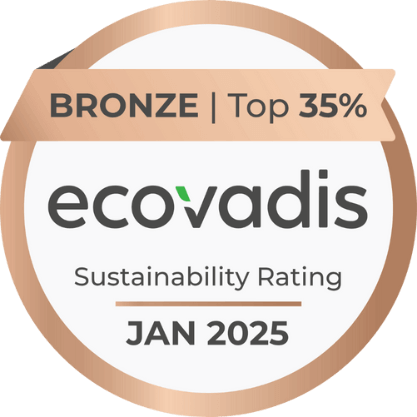When Green and Growth Compete
Biden’s New Law Exempts Semiconductor Fabs from Environmental Review
Carrie MacGillivray
![]()
Discover how Biden's new law exempts semiconductor fabs from NEPA reviews, speeding up U.S. chip production while raising key environmental concerns like PFAS pollution and resource strain.
On October 2, 2024, President Biden signed a new law exempting semiconductor manufacturing facilities from undergoing federal environmental reviews. These reviews are part of the National Environmental Policy Act (NEPA) of 1969 to win federal permits. This exemption from NEPA applies to those projects funded by the CHIPS and Science Act of 2022. The move represents a push and pull between rapidly building out semiconductor chip manufacturing capabilities onshore and ensuring these fabs are built with environmentally supportive practices.
The United States is amid a massive effort to regain a stronghold of semiconductor fabrication. At the end of 2024, TechInsights expects the U.S. to produce just over 10 percent of all chips globally. To ensure technological innovation in the United States thrives, the focus of the CHIPS and Science Act aims to develop these advanced technologies as well as skills and revenue onshore – and derisk the dependence on other regions to develop the chips that power consumer devices, enterprise applications, and military equipment. Not only will this $52B chip investment boost the economy, but it also protects the U.S. against an evolving geopolitical landscape.
For those in the semiconductor industry, the environmental review exemption is applauded as it allows the acceleration of semiconductor chip manufacturing capacity, and a quicker path to market for those fabs in development – without being hindered by process-intensive efforts to meet NEPA requirements. The CHIPS Act does encourage investment in sustainable technology and clean manufacturing processes. However, without the mandatory reviews, the question remains if some of these environmentally proactive efforts will be sidelined for speed.
For environmentalists and communities where these fabs are planned, or being built, the new law raises concerns that the necessary precautions to prevent or mitigate environmental impacts will be skirted. Fears range from energy strain on local grids, water contamination, factory emissions, and, most concerning, the exposure of PFAS (per- and polyfluoroalkyl substances) to the local environment. PFAS – known as forever chemicals – are persistent organic pollutants that don’t break down and pose a significant risk to humans when exposed.
The CHIPS Act is driving U.S. buildouts for both domestic and international vendors. Without the NEPA reviews, it will be interesting to see if attention to environmental elements related to construction, and eventual chip production, will be adversely affected. The semiconductor chip manufacturing industry is global, and environmental requirements are imposed to varying levels across different geographies. Europe is arguably the most progressive in terms of environmental advocacy and sustainable technology reporting requirements. Because the semiconductor supply chain is highly interconnected, vendors further downstream will be looking upstream to the fabs that manufacture the chips used in their products to provide Scope 3 emissions data as part of their reporting requirements. Foundries and their associated fab locations will increasingly weigh into investment decisions as companies throughout the semiconductor supply chain look to meet net zero emission commitments. Despite the lax requirements for CHIPS Act awardees, they must still consider the longer-term implications of customer sustainability requirements and local community impact, to name a few.
There is delicate balance between driving growth of economy and innovation, and addressing the long-term environmental impacts, which has its own associated costs. It is one’s hope that green and growth priorities can coexist, and that the semiconductor ecosystem has the foresight to see that today’s decisions impact the future of a sustainable – both economically and environmentally - semiconductor industry in the United States.













